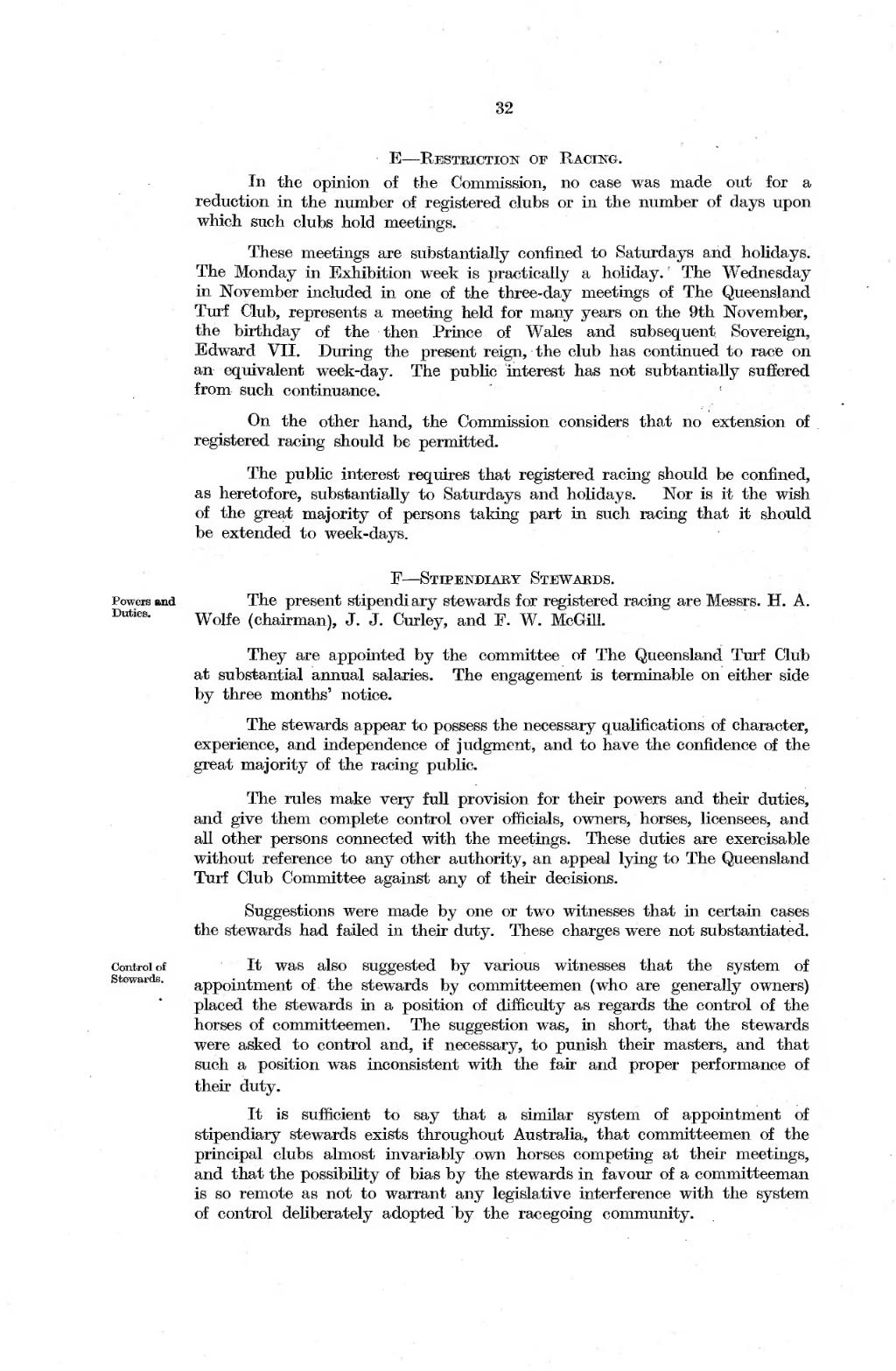32
E—Restriction of Racing.
In the opinion of the Commission, no case was made out for a reduction in the number of registered clubs or in the number of days upon which such clubs hold meetings.
These meetings are substantially confined to Saturdays and holidays. The Monday in Exhibition week is practically a holiday. The Wednesday in November included in one of the three-day meetings of The Queensland Turf Club, represents a meeting held for many years on the 9th November, the birthday of the then Prince of Wales and subsequent Sovereign, Edward VII. During the present reign, the club has continued to race on an equivalent week-day. The public interest has not subtantially suffered from such continuance.
On the other hand, the Commission considers that no extension of registered racing should be permitted.
The public interest requires that registered racing should be confined, as heretofore, substantially to Saturdays and holidays. Nor is it the wish of the great majority of persons taking part in such racing that it should be extended to week-days.
F —Stipendiary Stewards.
Powers and Duties.
The present stipendiary stewards for registered racing are Messrs. H. A. Wolfe (chairman), J. J. Curley, and E. W. McGill.
They are appointed by the committee of The Queensland Turf Club at substantial annual salaries. The engagement is terminable on either side by three months' notice.
The stewards appear to possess the necessary qualifications of character, experience, and independence of judgment, and to have the confidence of the great majority of the racing public.
The rules make very full provision for their powers and their duties, and give them complete control over officials, owners, horses, licensees, and all other persons connected with the meetings. These duties are exercisable without reference to any other authority, an appeal lying to The Queensland Turf Club Committee against any of their decisions.
Suggestions were made by one or two witnesses that in certain cases the stewards had failed in their duty. These charges were not substantiated.
Control of Stewards.
It was also suggested by various witnesses that the system of appointment of the stewards by committeemen (who are generally owners) placed the stewards in a position of difficulty as regards the control of the horses of committeemen. The suggestion was, in short, that the stewards were asked to control and, if necessary, to punish their masters, and that such a position was inconsistent with the fair and proper performance of their duty.
It is sufficient to say that a similar system of appointment of stipendiary stewards exists throughout Australia, that committeemen of the principal clubs almost invariably own horses competing at their meetings, and that the possibility of bias by the stewards in favour of a committeeman is so remote as not to warrant any legislative interference with the system of control deliberately adopted by the racegoing community.
